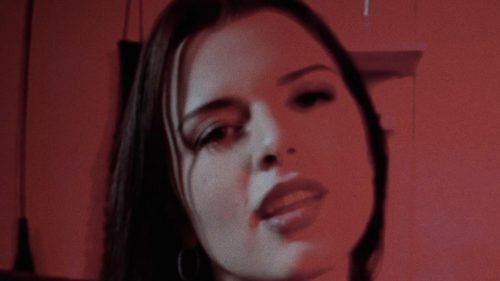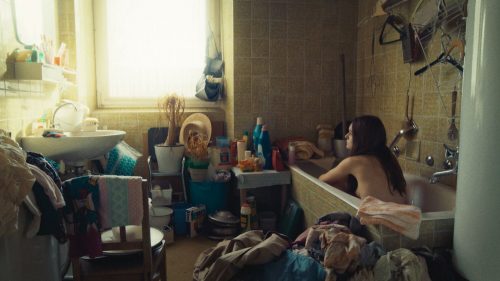 Back to selection
Back to selection
The Five Rules of Success, PVT Chat, Time of Moulting and Wildland: The 2020 Fantasia Festival
 The Five Rules of Success
The Five Rules of Success While it’s doubtful anyone really wants to see their favorite film festival go virtual, in this year (and maybe more) when nearly everything is pivoting to online status, Montreal’s annual Fantasia marathon is one you’d expect to suffer the most from the transition. Yet, from the other side of a screen 1,500 miles away, the festival sure seemed to pull off the difficult feat of making it all work. No late-night Irish bar hangs, no traditional audience chants, no horror fan takeover of the utilitarian urban campus of Concordia University and its construction-riddled surroundings for three weeks of sleepaway-camp shenanigans. Instead, live streams and a YouTube channel — now jammed with videos of Zoomed panels and Q&As — and a geoblocked lineup of 104 international features (and almost 200 shorts) that zing across the VU meter of genre possibility, indicator arrow cracking like a whiplash. It may not have been the “real thing,” but the Fantasia crew managed better than most in translating the spirit of their festival into the digital realm. And it didn’t lack for a few surprises in the expansive mix.
Grungy and unpredictable, The Five Rules of Success is the bracing third feature from Orson Oblowitz (Trespassers, The Queen of Hollywood Blvd.), a Straight Time variant in which a young ex-con, jailed since a mysterious childhood incident, returns to the outside world with a mission. Known only as X, Santiago Segura offers a compelling portrayal of a man gripped by single-minded ambition whose drive barely outpaces the damaged ghosts within. Between a twisted, ethically challenged parole officer who lusts for him as a forced submissive, and his hyperactive would-be BFF – the cokehead, petty thug son of his Greek restaurant boss – X doesn’t seem to have great odds of making it. Or, maybe, in giving into the criminal vortex that seems to be his only option he’s found a way to game a system that only wants to destroy him. The tension and dread are artfully elevated through surreal design choices and hallucinatory tremors. X’s threadbare room, a cross between Travis Bickle’s tenement and a reliquary for tortured Catholics, becomes less a sanctuary than a replication of the prison in its occupant’s untethering mind. (The name Oblowitz might be familiar to fans of No Wave cinema: Michael Oblowitz, Orson’s father, directed the 1983 King Blank, and the younger director’s mother, actress Rosemary Hochshild, has a small role in Five Rules).

The weirdo-outsider vibe abides in Ben Hozie’s PVT Chat, which stars familiar indie writer-director-actor Peter Vack as a sex-and-gambling obsessed perv, blowing up his credit card in online blackjack sessions and extended digital tête-à-têtes with a camgirl/dominatrix (Uncut Gems’ breakout discovery, Julia Fox, who carries her co-leading role with all the zest you’d hope for). The story, conceived by writer-director Hozie (of Brooklyn art-rock band Bodega), seems to foreshadow a potential calamity. Vack’s Jack poses as a software inventor, although the threadbare apartment he’s about to be kicked out of might betray that as fabrication. Fox’s Scarlett is taken in, her mean-girl attitude also something of a pose, going off the clock with Jack as the two bond, and he flatters her artistic aspirations and dangles the offer of a Parisian getaway. He’s also turned stalker, convinced that Scarlet, who says she’s in San Francisco, actually lives close by, a New Yorker just like him. Just when things look most predictable, the character perspective flips, shaking up expectations (which get flipped again in the final act). The casting is prime, as the leads dive headlong into the characters’ kink zone with emotional vulnerability and relish. The film balances desperation and loneliness on one side of the scale with the gonzo bravado the Internet offers to strangers seeking reckless intimacy on the other. It might be the current festival film most reflective of the pandemic dynamic, watching on a laptop as actors play cooped-up characters watching each other on a laptop. The Safdie-adjacent atmosphere – Jack and Scarlett are both hustlers, hustling each other, in a New York City nightscape of grime and glitter – includes a memorable appearance by Buddy Duress (Heaven Knows What, Good Time), and a subplot that involves a bold gambling scheme, but Vack and Fox guarantee the film its own winning, peculiar orbit.

One of the year’s most singular, striking feature debuts is Sabrina Mertens’ Time of Moulting, made while the director was in film school in Ludwigsburg, Germany, and a world premiere at this year’s Rotterdam International Film Festival. Not to fall back on the pandemic theme again, but it also taps into something uncanny in this moment, this story about a little girl who never gets to leave the home she shares with her mentally disturbed mother (and a distant, disaffected father). It’s one of the most disturbing films I’ve seen in a good while, in creepy tune with what I call the “Austrian basement aesthetic” in which sustained, static observation of seemingly nothing much gradually evokes gut-deep anxiety and a looming, palpable awareness that something really, really fucked-up is going on. Is it the box of butcher knives that draws the child Stephanie (Zelda Espenscheid) to the basement, or those other sinister-seeming artifacts stored away in the dust and clutter? Is it just the unerring stillness of the camera, staring down the drab, ’70s German household tableaux until inanimate household objects begin to silently scream their secrets? Mertens expertly pulls everyone down into the rabbit hole.

Dark family psycho-drama also is intrinsic to Wildland, a brooding standout in which a suddenly orphaned teen named Ida (Sandra Guldberg Kampp) is taken in by an aunt she’s never heard much good about, and soon enough discovers why, her young life taking another drastic detour on top of the tragic turn she’s still processing. Sidse Babett Knudsen (of the Danish political series Borgen) is a formidable presence in a household of three grown sons, all of whom are in their mother’s employ. The family business, Ida soon learns, is beating money out of unlucky debtors in their seemingly placid town. It’s a profession in which anything that can go wrong eventually will, especially when mama chastises the boys for not bringing in enough cash. Director Jeanette Nordahl, whose film bowed at Berlinale in February, orchestrates the slow-building tension with a fluid sense of the pressure cooker that domestic interiors can become, contrasting intimate tensions and suffocating options with the perhaps illusory freedom painted in the pink skies above the wide-open northern landscape. Kampp is a real discovery, her muted performance lending rich ambiguity to her character’s thoughts, those perceptions increasingly fraught after an aggressive collection visit goes haywire and her loyalty to a family in which she barely belongs is called into question. Threaded through all this is a coming-of-age story that finds Ida drawn to the pregnant girlfriend (Carla Philip Røder) of one of her cousins (a fragile drug addict played by phenomenal Winter Brothers star Elliott Crosset Hove, here sticking close to the contours of a very secondary role). The film ends on an abrupt note of radical emotions, character trajectories unresolved and its pervasive sense of unease yet hovering. If Wildland was a streaming series, I’d be ready to binge.
